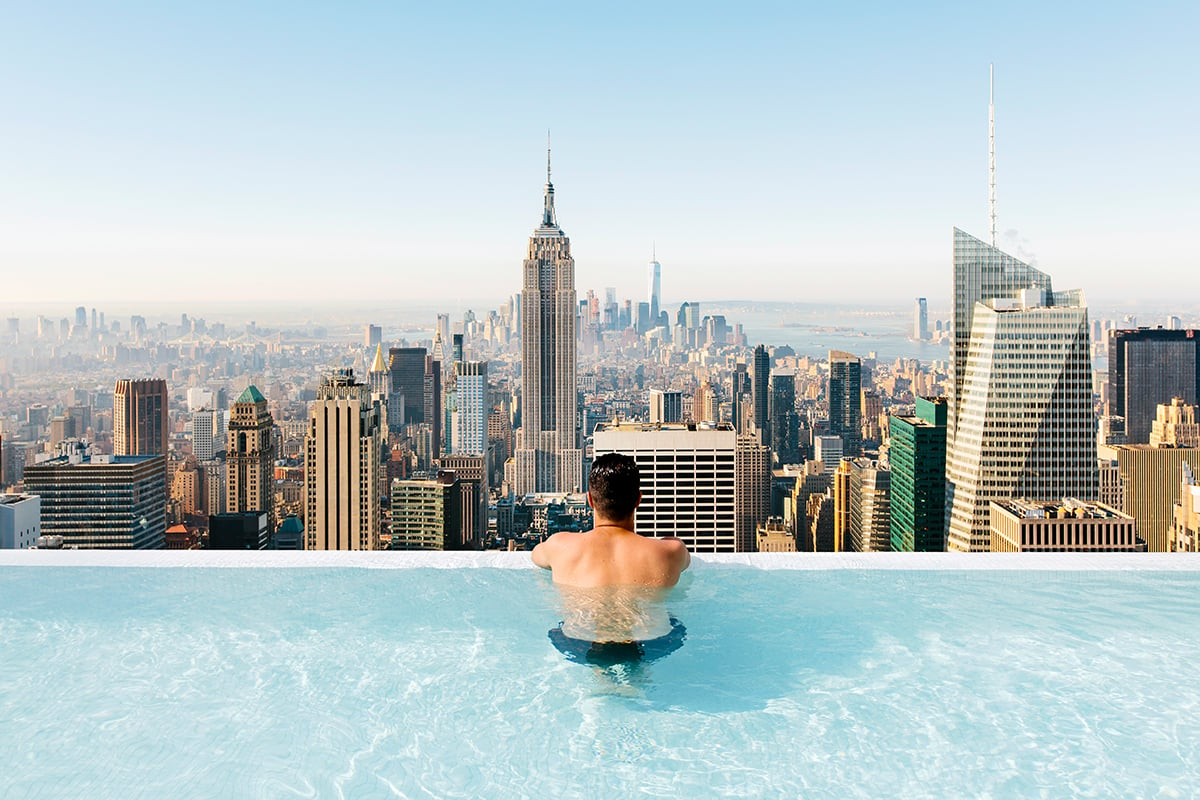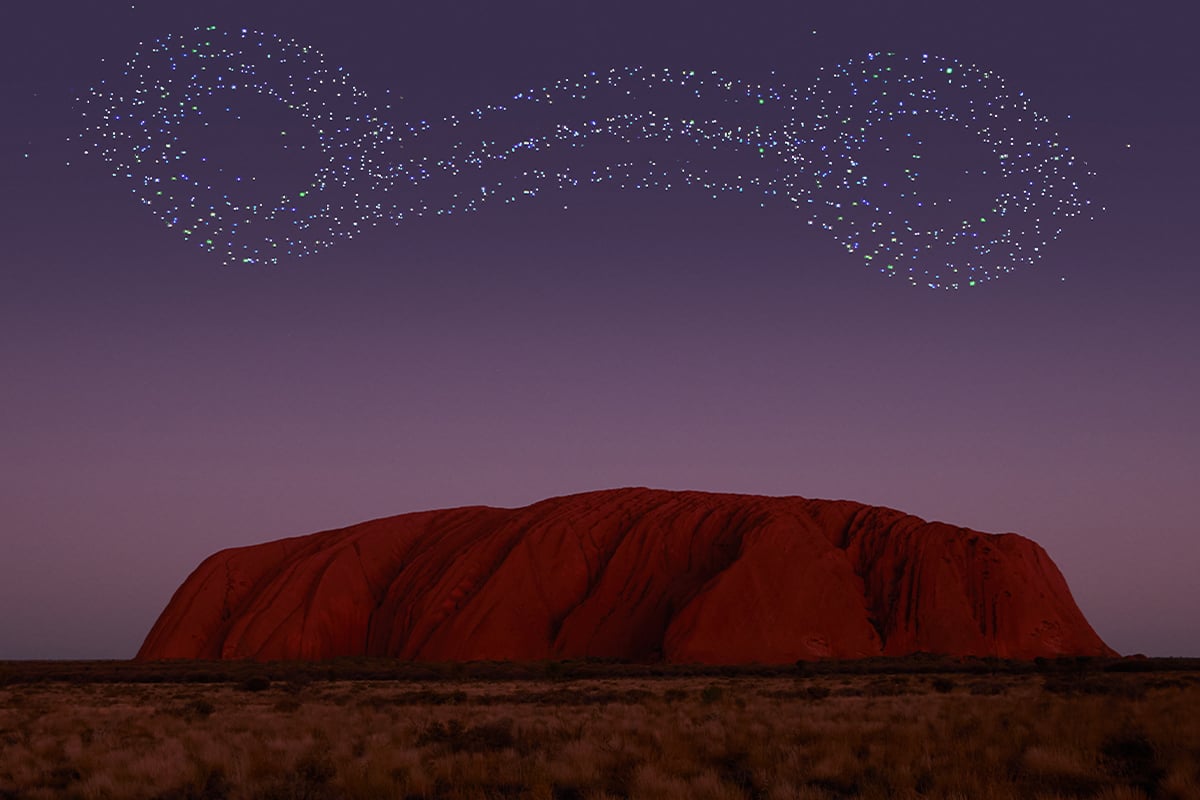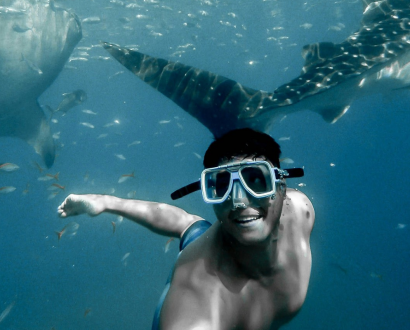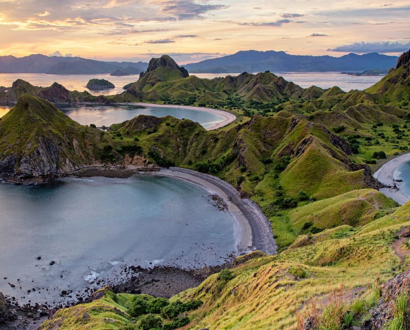As we navigate the world of remote work and technological advancement, flexibility is a theme that is encouraging our inner explorers to make the most of this newfound freedom.
Today’s well-seasoned traveler is also propelling the travel industry to new heights with an ever-growing list of priorities. From blending your own perfume with the help of a master perfumer in Oman to discovering how wine is produced at a remote vineyard in Patagonia, purposeful travel is at the forefront of people’s minds.
It’s the driving force behind the travel industry’s efforts to connect us to people and places we might have never considered. Slowing down and spending quality time in fewer places prevails over seeing it all.
“This is driving demand for transformative getaways, hidden all-inclusive resort stays, spiritual retreats and off-the-beaten-path emerging destinations.” – Tina Edmundson
The traveler’s expanded mindset sparks the opportunity for creativity across the board – from guest itineraries to tech innovations and brand partnerships. It’s a time to break new ground, especially in luxury travel.
“Consumers are also looking for travel centered around wellness, including seeking out personalized service in order to enhance their well-being,” says Tina Edmundson, President of Luxury at Marriott International. “This is driving demand for transformative getaways, hidden all-inclusive resort stays, spiritual retreats and off-the-beaten-path emerging destinations.”
Exotic and meaningful travel
While travel is often about opening our senses to new people and places, travelers in 2023 are even more intentional about how they choose to spend their time away from home. This has resulted in concepts like slow travel, sustainable travel, spiritual retreats and wellbeing taking on newfound levels of importance.
“Travelers around the world have a renewed appetite for travel but to more exotic locales and for off-the-beaten-path experiences,” says Lisa Pile, Vice President of Sales and General Manager Asia–Pacific at Regent Seven Seas Cruises. “They are seeking opportunities to connect with local people, places and communities, more than ever before.”
As people continue to reframe luxury in terms of collecting experiences instead of goods, this fits perfectly with the post-pandemic mindset of prioritizing what matters most – forging connections, acting responsibly and ticking off our bucket-list destinations.
“Affluent consumers are emerging from the pandemic and redefining luxury as they move from acquisitive luxury, which includes showing off wealth with flashy logos, to a more meditative luxury, which is motivated by showing experiences,” Edmundson says.
For Marriott International, this shift is leading to an era of growth that’s expanding the geographical parameters of luxury travel.
“In 2023, we are slated to open roughly 35 new luxury hotels in destinations from Kenya to Singapore and Japan to Mexico,” she adds.
This move coincides with latest insights from American Express Travel’s ‘2023 Global Travel Trends Report’, where 89 percent of survey respondents agreed that they were keen to travel to entirely new destinations. Additionally, 85 percent of respondents highlighted a desire to immerse themselves in the local culture, and 88 percent wanted to purchase from local small businesses.

“It’s about making up for lost time and ticking off those genuine bucket list experiences.” – Jason Worth
The thirst to connect with lesser-known destinations has amplified the adventure component in cruise ship itineraries and led to an increase in bookings to far-flung places.
“Our guests are now booking longer, more port-intensive voyages to destinations like Africa, the Mediterranean and Northern Europe, including more untapped countries like Greenland and Iceland, and locales across South America,” explains Jason Worth, Vice President of Sales and General Manager Asia–Pacific for Oceania Cruises.
“It’s about making up for lost time and ticking off those genuine bucket list experiences,” he says. “We revel in providing guests with destination-rich itineraries and a raft of unique and immersive shore excursions that span the globe.”
The company’s around-the-world cruises, which are in high demand, is a trend that Worth says is likely to continue as more travelers take the plunge to explore the world via a luxury cruise ship.
“We are delighted to have seen a huge shift in new-to-brand guests, with approximately 50 percent of our bookings coming from travelers who have never experienced sailing with Oceania Cruises before,” he says.
Whether it’s a local culinary destination, cooking class, lecture or business with a distinct or high-quality product offering, tapping into people’s inner adventurer is a must.
“The great thing about adventure is that it has no boundaries. It caters to all types of travelers,” says John O’Sullivan, CEO of Experience Co (EXP). “For example, our Skydive Australia business is primarily for the 18- to 25-year-old traveler. But, in saying that, we have had 90-year-olds jump with us.”
Who wouldn’t relish an epicurean guided tour that reimagines all-inclusive luxury or a heart-pounding experience of a lifetime?
“Cruise itineraries need to be even more immersive, connecting travelers with unforgettable wanderlust experiences that they can treasure forever,” emphasizes Pile, who explains the importance of providing guests with a culturally and gastronomically rich itinerary.
For EXP, the focus is on getting people out of their comfort zone and deepening their engagement with places.
“Customers are expecting more immersive experiences. For example, on the Great Barrier Reef they just don’t want to snorkel, they want to snorkel with a guide and understand the reef environment in more detail,” O’Sullivan says.
“The critical area for us at this point is our staff. Our skydive tandem masters, our master reef guides, our guides on our multi-day walks at Arkaba in South Australia and on The Maria Island Walk in Tasmania, for example, all contribute to the experience in a way that’s never been more important to our guests as they continue to seek more information on their experience,” he says.
Leading with digital
Hotels also can enrich the guest experience via technology, which leaves more room for staff to focus on the human aspects of delivering a memorable service.
“It’s more important than ever for us to lead in the digital space, to further the spirit of innovation and use technology in a way that allows us to deliver a personalized guest experience from start to finish,” Edmundson says.
From mobile apps and customer service chatbots to augmented reality that enables travelers to view hotel rooms prior to making a booking, technology can lead to a more seamless, less stressful experience. This has the potential to enhance, rather than hinder, the sense of connection people are craving.
“Our luxury properties are defined by bespoke services and superb amenities, and we believe that technology can be used to better deliver both,” she explains. “Functions within our Marriott Bonvoy app also help free up our associates for more meaningful interactions and time with our guests. High tech and high impact.”

Investing in quality, for longer
With the rise of remote work comes the bleisure traveler, who combines work with personal time, and who isn’t location dependent. While most travelers typically plan their trips around public holidays and weekends, this new flexibility has lengthened the duration of stays and increased the demand for single suites.
“A pent-up desire to travel, combined with a newfound flexibility when it comes to remote work or learning, has resulted in travelers staying longer,” Edmundson says. “The weekend trip is no longer Friday to Sunday, it’s Thursday to Monday, perhaps with a day of remote work included.”
For Oceania Cruises, post-pandemic travelers are not only booking earlier for longer, but the increased demand for higher-end suites and single accommodation suggest that travelers are also keen to invest in comfort and style.
“We’re seeing a shift toward a younger skew of guests. Luxury travelers are looking to start cruising earlier.” – Lisa Pile
“Our guests are booking earlier than ever before in a bid to secure their preferred suite and sailing,” Worth says. “They are also booking a higher category of state rooms and suites too, so we’re seeing more interest in our concierge and penthouse level suites than ever before.”
As younger generations increasingly embrace the ethos of investing in a luxury lifestyle, this has shifted the demographic contributing to the luxury travel industry, keeping travel companies on their toes as to how to best cater to this younger demographic.
A key finding in the ‘2023 Global Travel Trends Report’ was that 84 percent of gen Z and millennials preferred to invest their dollars into their dream holiday as opposed to luxury goods.
“We’re seeing a shift toward a younger skew of guests,” Pile says. “Luxury travelers are looking to start cruising earlier, in their early 50s, and are willing to spend more on that unrivaled luxury experience.”
Built-in flexibility and innovation
With the rise in the solo explorer and multi-generational family travel, becoming astute to the needs of both these groups is paramount.
“We are evolving our guest experience to align with the shifting mindset of the global traveler. For example, we know that people are increasingly planning trips based around things they want to do, such as visit a particular Michelin-starred restaurant,” Edmundson says.
In light of the newly launched Ritz-Carlton Yacht Collection, competition sparks innovation, Edmundson says. Whether it’s a private terrace overlooking the River Talek or a brand extension, like the Yacht Collection, widening the window of possibilities for people to explore the world should be top-of-mind.
“What we are now seeing are guests looking for experiences that are even more customizable,” Worth says. “Therefore, we allow travelers the flexibility of choosing what onboard amenities they would like to include in their cruise fare, whether that’s an additional shipboard credit to use in the spa, a drinks package for premium wine and spirits, or shore excursions that allow them to be fully immersed in the destinations that we visit.”

“Visitors will be able to view the show on a sustainably-built platform atop a desert dune with stunning panoramic views of both Uluru and Kata Tjuta nestled on the horizon.” – Matt Cameron-Smith
At Voyages Indigenous Tourism Australia – where 100 percent of profits support Indigenous training and employment – one of the company’s latest developments is the Wintjiri Wiru experience that is redefining both the guest experience and inclusive tourism.
“Visitors will be able to view the show on a sustainably-built platform atop a desert dune with stunning panoramic views of both Uluru and Kata Tjuta nestled on the horizon,” CEO Matt Cameron-Smith says. “The depth of the story is revealed when more than 1,000 luminous drones take flight each night to lift the ancient images to the sky.”
According to Cameron-Smith, Indigenous tourism experiences are popular among domestic and international travelers alike. The guided walking tours at Uluru or bush tucker sessions at Ayers Rock Resort are favorites among tourists who enjoy personal interactions with Indigenous team members.
Such experiences appeal to a broad demographic and are great conversation starters given that almost half of respondents in the ‘2023 Global Travel Trends Report’ base their travel decisions on word-of-mouth recommendations from friends and family.







